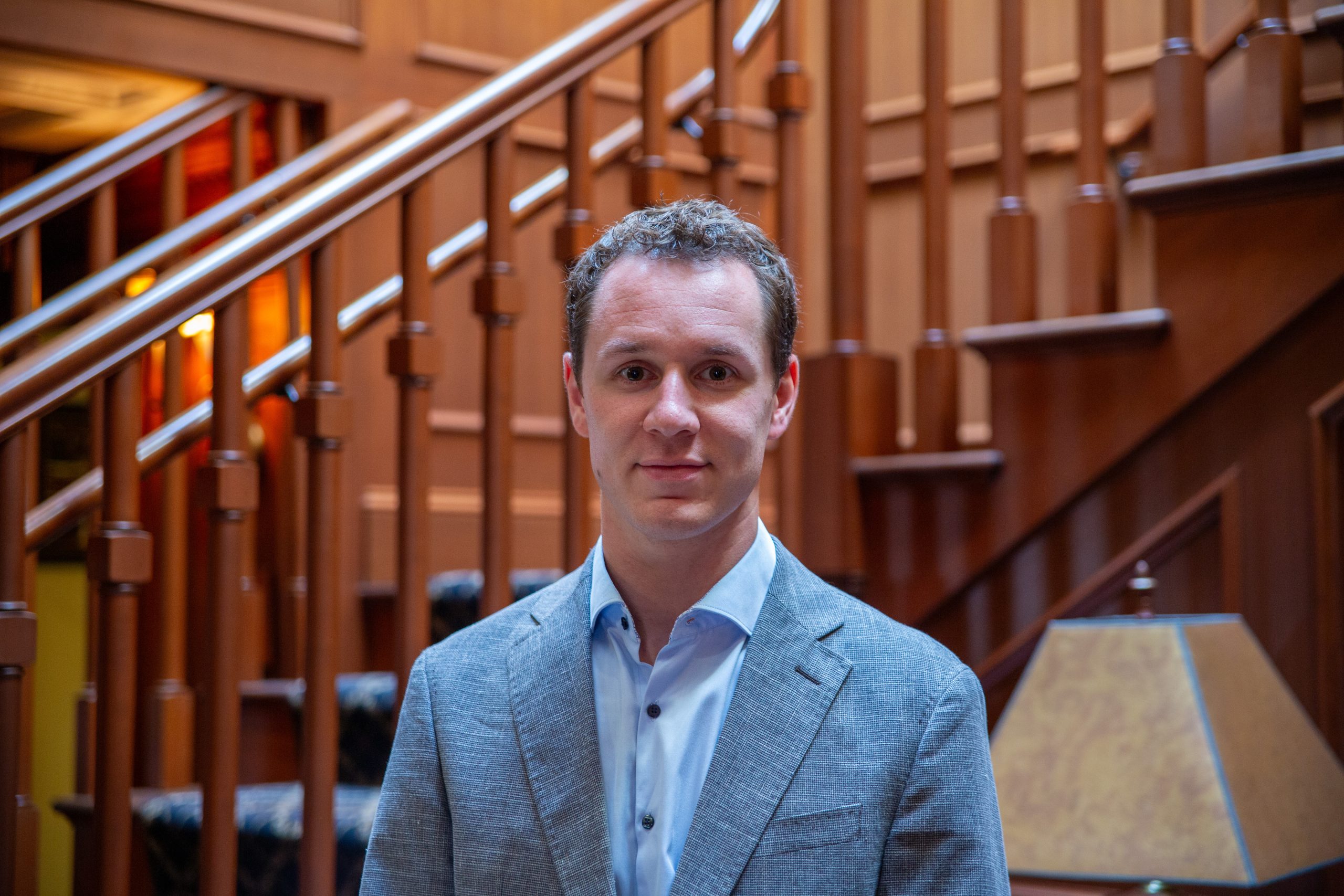GPEP Feature: Johannes Geith
Johannes Geith is a 2024-2025 GPEP affiliate fellow. He is a Ph.D. candidate at the Department of Political Science at Stockholm University and is affiliated with the Stockholm Center on Global Governance.
Geith’s research focuses on the global politics of technological change. His dissertation project is entitled, “The Global Governance of Artificial Intelligence,” and focuses on features of emerging international AI regimes, specifically actor preferences, bargaining dynamics, and institutional design.
- What excites you about the GPEP fellowship?
The environment at the Mortara Center is excellent – both from an academic and a personal perspective. I greatly enjoy attending the regular standing seminars, as well as our monthly GPEP meetings, while also having the opportunity to tune into lectures and other interesting events hosted at the Center. The townhouse atmosphere makes the Mortara Center a warm and inviting space, ideal for connecting with faculty over a coffee or exchanging ideas with fellow graduate students during lunch.
2. What is your research about?
My research is on the global governance of artificial intelligence. More specifically, I am interested in questions related to the preferences, bargaining dynamics, and the institutional design of emerging international AI regimes.
3. How did you become interested in your topic?
That is an excellent question! I first came into contact with artificial intelligence and its societal implications while working at Acatech, the German Academy of Science and Engineering in Munich, Germany. I understood that there was a valuable perspective that political scientists and my background in international relations could offer, ultimately leading me to apply to a PhD program and research project in Stockholm, Sweden on the topic. The technological advance in AI has been staggering just since I started working on my dissertation; at the same time, state and non-state actors are increasingly turning to the global level to find ways to mitigate some of the most fundamental concerns that AI poses. So many research questions remain to be asked in this field!
4. How did you like DC so far? And what would be some of the things you still want to try or do in DC?
I really enjoy living in DC – I am able to commute to work by bike every day and the fall season has been beautiful. Perhaps by training, I get excited about the political spectacle the city has to offer on a daily basis. DC is also a very culturally diverse city, so there are several restaurants that are still on my to-do list. I also want to make sure that I make the best of my time at Georgetown by reaching out to people working on similar issues of interest, either at other universities or the many organizations headquartered in the city.
5. What is your favorite way to spend your spare time?
I am a passionate runner and passing the White House or the Washington Monument are not your usual running tracks. I also enjoy going to concerts, the Kennedy Center is an excellent address in this regard. My fiancée lives in New York City, so I try to visit her on weekends. As an art historian, she always has a museum she’s excited to take me to.


